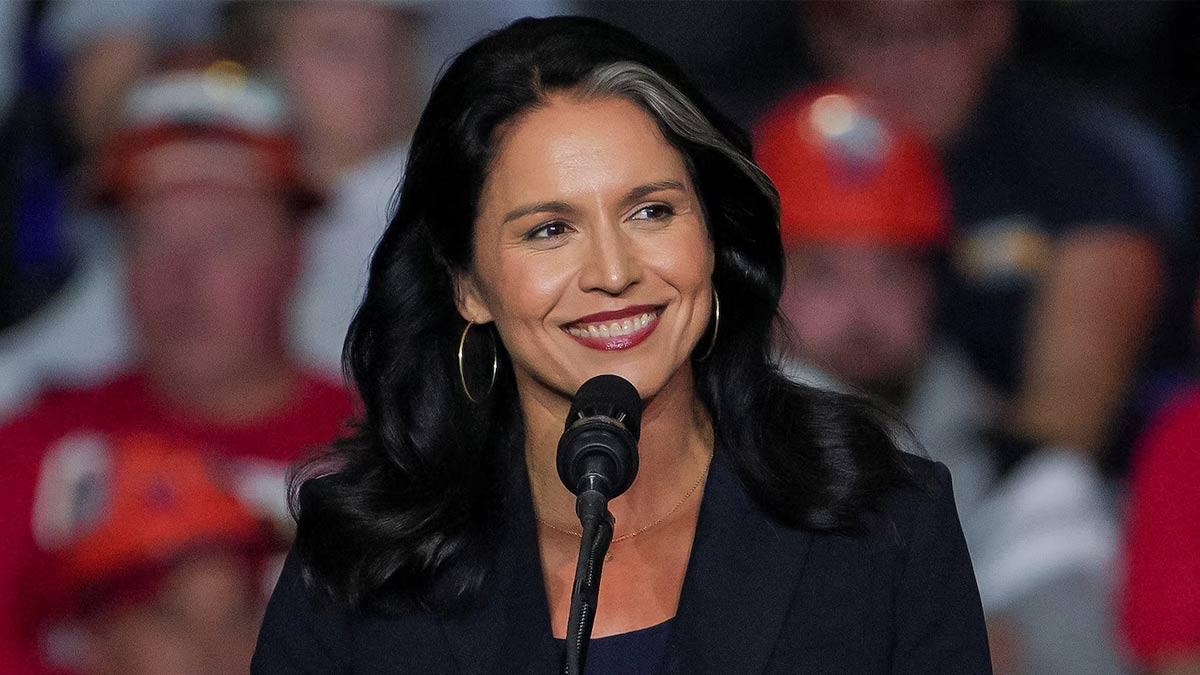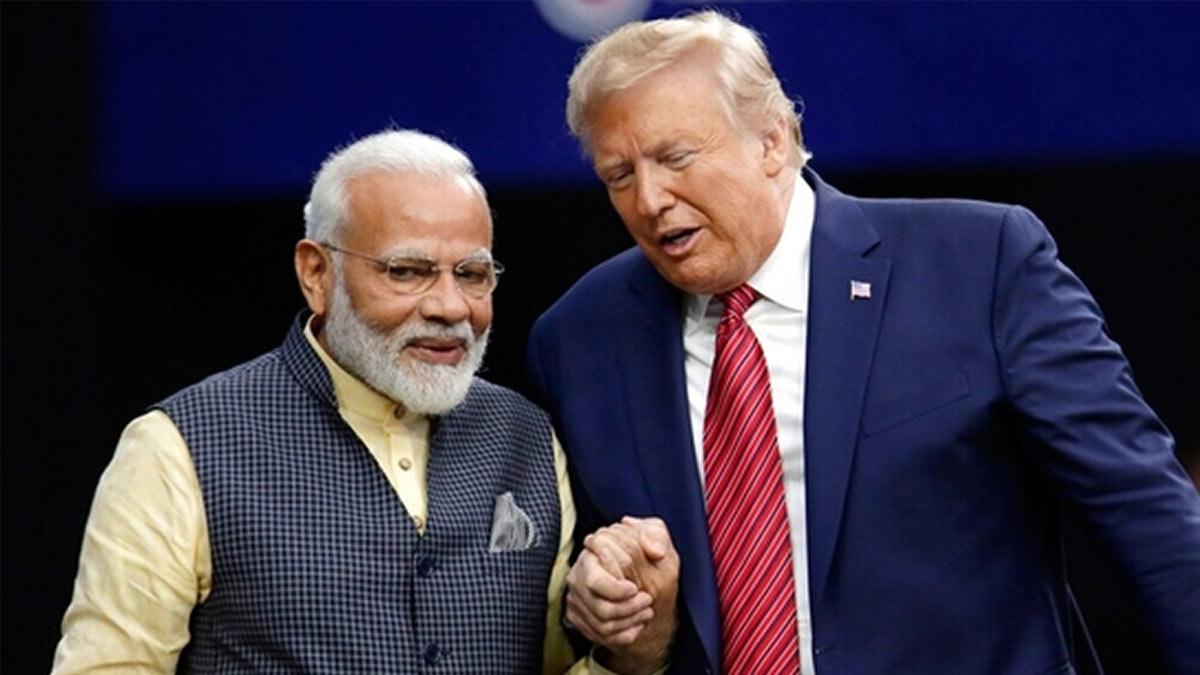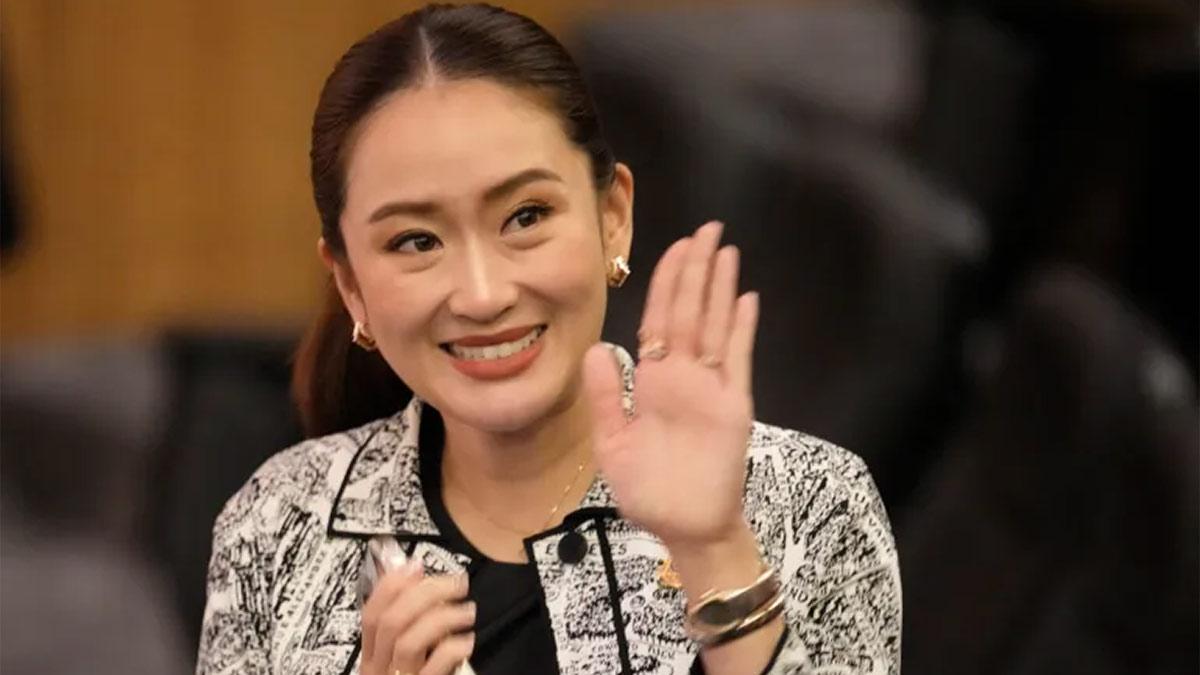President-elect Donald Trump's choice for intelligence chief, Tulsi Gabbard, faced new questions on Capitol Hill on Monday about her closeness to Russian-ally Syria in the shocking collapse of that country's hardline Assad regime.
Gabbard took no questions about her 2017 visit to war-torn Syria as she ducked into one of several private meetings with senators who are being asked to confirm Trump's unusual nominees.
But the Democrat-turned-Republican Army National Reserve lieutenant colonel gave a statement with which she continued her endorsement of Trump's America First approach to national security and a more limited U.S. military footprint overseas.
"I want to address the issue that's in the headlines right now: I stand in full support and wholeheartedly agree with the statements that President Trump has made over these last few days with regards to the developments in Syria," Gabbard said exiting a Senate meeting.
The incoming president's Cabinet and top administrative selections are splitting his Republican friends and drawing concern, if not outright opposition, from Democrats and others. Gabbard was far from alone, however; other Trump nominees, including Pentagon choice Pete Hegseth, were back at the Capitol ahead of what is expected to be volatile confirmation hearings next year.
The new president is busy building his slate for an aggressive program of deporting mass numbers of immigrants, terminating federal employees, and rolling back U.S. aid to Ukraine and NATO nations.
"This will be a sit-down to visit, that's what it is all about," said Sen. Mike Rounds, R-S.D. as he ushered the Hawaii congresswoman into his office.
Other appointments the president-elect made Monday included his lawyer Harmeet Dhillon as assistant attorney general for civil rights at the Justice Department and Mark Paoletta as the returning general counsel of the Office of Management and Budget.
Meanwhile, Defence Secretary designate Hegseth seemed to gain support from previously skeptical senators, the former Army National Guard major denying sexual misconduct allegations and promising not to drink alcohol if he is confirmed.
The president-elect's pick to run the FBI, Kash Patel, who wrote extensively about locking up Trump's enemies and suggested dismantling the Federal Bureau of Investigation, launched his first senatorial visits on Monday.
"I expect our Republican Senate is going to confirm all of President Trump's nominees," tweeted Sen. Tom Cotton, R-Ark.
Despite widespread concern about the qualifications and demeanours of nominees for the jobs that are amongst the highest positions in the US government, Trump's team is portraying all criticism against them as mere political smears and innuendo.
Demonstrating that concern, nearly 100 former senior US diplomats and intelligence and national security officials have called on Senate leaders to schedule closed-door hearings to allow for a full review of the government's files on Gabbard.
Critics of Hegseth have been described as being similar to those that lodged against Brett Kavanaugh, former President Trump's Supreme Court nominee who denied an accusation of sexual assault and who went on to be confirmed during Trump's first term in office.
Anonymous accusations are trying to destroy reputations again," said Sen. Lindsey Graham, R-S.C. "We saw this with Kavanaugh. I won't stand for it.
One high-profile Republican, Iowa Sen. Joni Ernst herself a former Army National Guard lieutenant colonel and sexual assault survivor who had been hammered by Trump allies for her lukewarm reception to Hegseth, seemed more receptive to him after the two followed up Monday.
"I appreciate Pete Hegseth's responsiveness and respect for the process," Ernst said in a statement.
According to Ernst, after the "encouraging conversations", he has promised to appoint a senior official who will "prioritise and strengthen my work to prevent sexual assault within the ranks. As I support Pete through this process, I look forward to a fair hearing based on truth, not anonymous sources".
Ernst also praised Patel — "He shares my passion for shaking up federal agencies" — and Gabbard.
Once a rising Democratic star, Gabbard, who represented Hawaii in Congress, arrived a decade ago in Washington, her surfboard in tow, a new generation of potential leaders. She ran unsuccessfully for president in 2020.
But Gabbard suddenly left the party and briefly ran as an independent before merging with Trump's 2024 campaign as one of his supporters, in large measure due to her opposition to US presence abroad and her resistance to aiding Ukraine in its conflict with Russia.
That the Washington national security establishment and her former colleagues were stunned by her visit to Syria to meet with then-President Bashar Assad around the time of Trump's first inauguration during the country's bloody civil war was understandable.
The US had severed diplomatic relations with Syria. Her visit was seen by some as legitimising a brutal leader who was accused of war crimes.
Gabbard has defended the trip, saying it's important to open dialogue, but critics hear in her commentary echoes of Russia-fuelled talking points. Assad fled to Moscow over the weekend after Islamist rebels overtook Syria in a surprise attack, ending his family's five decades of rule.
She said her own perspectives had been shaped by "my multiple deployments and seeing firsthand the cost of war and the threat of Islamist terrorism.".
Gabbard mentioned, "That's one of the many reasons why I appreciate President Trump's leadership and his election, where he is fully committed, as he has said over and over, to bring about an end to wars.
Last week, the near 100 former officials, both Democratic and Republican administrations included, said in a letter to Senate leaders they were "alarmed" by the choice of Gabbard to oversee all 18 US intelligence agencies.
They said her past actions "call into question her ability to deliver unbiased intelligence briefings to the President, Congress, and to the entire national security apparatus".
The Office of the Director of National Intelligence was established after the September 11, 2001, attacks to coordinate the nation's intelligence agencies and act as the president's main intelligence adviser.
Read also| India and Bangladesh Foreign Secretaries Hold Talks in Dhaka Amid Strained Relations
Read also| Former Head of Soros' Open Society Foundations Meets Muhammad Yunus in Dhaka


















